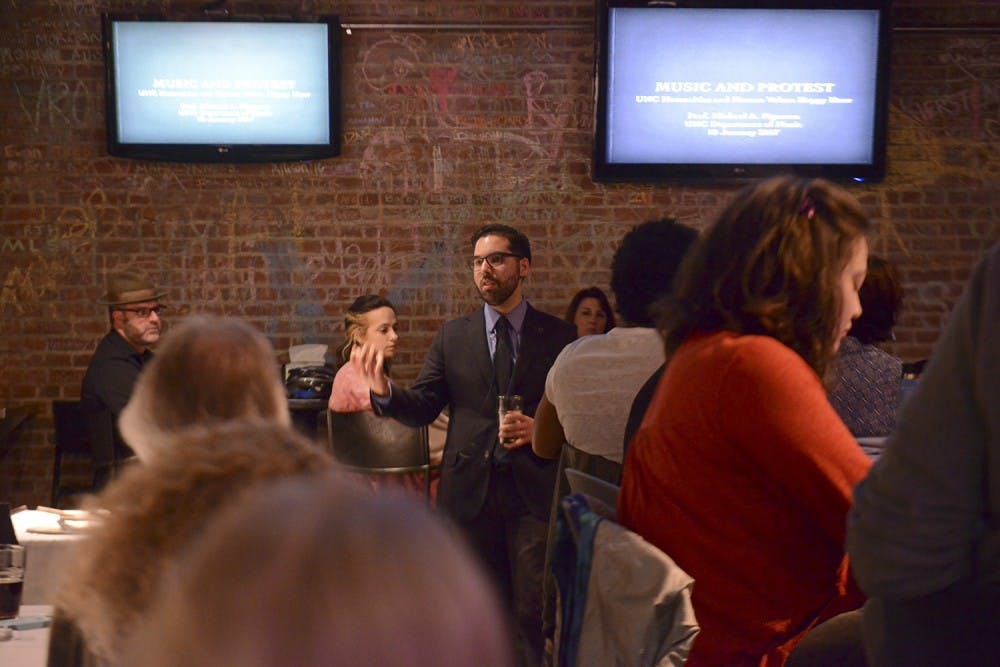“Politics is on the tops of everyone’s Facebook feeds, and it’s all you ever hear about anymore,” Rachel Schaevitz, a postdoctoral fellow who organizes events for the program, said. “And, it’s exhausting, but it’s so important, so it’s hard to just say, ‘I’m not going to talk about politics anymore,’ because this is our world, and our countries, and our lives, and we need to.”
Many celebrities like Katy Perry and Cher are protesting the inauguration, leaving lesser-known singers like Toby Keith and Lee Greenwood to perform.
“With the upcoming presidential inauguration that many people are unhappy about, using music to voice this opposition is such a powerful tool, ” junior Maddie Fisher said. “As a musician myself, I find music to be one of the greatest ways to move an audience and to make a point.”
At the event, Figueroa introduced the relationship between music and political protest.
“There’s really no such thing as a universal category known as protest music or protest song,” he said. “There are many different possibilities for musical protest. At its basic level, it’s any music activity that challenges or resists some political order.”
Though Figueroa is interested in protest music in pop culture, he is more drawn to smaller movements.
“What’s more interesting to me is the non-celebrity,” Figueroa said. “The way that ordinary citizens use music to protest very political issues. How music is used in smaller ways, not amplified on the world stage — things that happen locally.”
Though Figueroa covered protest music during the Trump election, he also spoke about protest music around the world.




